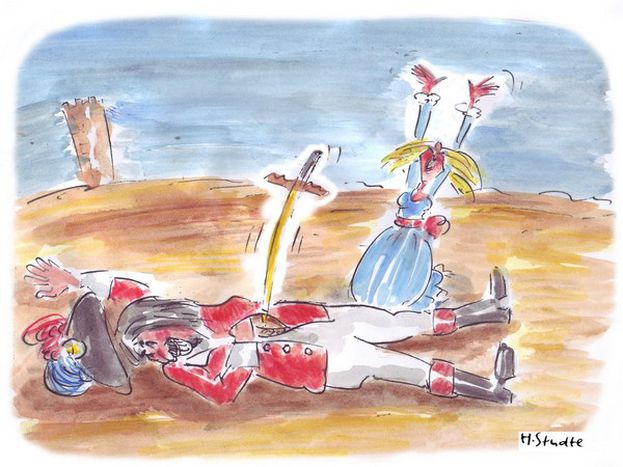
All's fair in love and war
Published on
Translation by:
Lydia BigosThe stories of lovers from times of war are the subject of countless numbers of books and films. Why are love and war so fascinating and why are they always shown together? Tour of Europe's expressions
All's fair in love and war, the English say, echoed by the Spanish: en el amor como en la guerra todo vale ('in love and in war everything goes') and the Germans: in der Liebe und im Krieg ist alles erlaubt ('in love and war everything is permitted').
It is very easy to find a reason to declare war on someone (German - jemandem den Krieg erklären - someone declares war) and remain in a state of war (French – être en guerre ouverte avec quelqu'un – 'to be at open war with someone'). He who lives by the sword, also dies by the sword, is a saying inspired initially by the Bible: for all they that take the sword shall perish with the sword: if you become a fighter, you have to die in battle. Maybe its better to follow French guidelines and 'smoke the peace pipe' which belongs to the North American natives (fumer le calumet de la paix) and 'live life on love and fresh water' (vivre d'amour et d'eau fraîche), which is also a reference to not needing money. Speaking of amour, it's well known that love is blind and l’amour est auvegle.
But love has its problems, such as betrayal: l'amour est un jeu où vous trichez toujours ('love is a game in which one always cheats'). For this reason, it is important to be loyal in love and not only in love but in life: faire de bonne guerre ('make good war') and then everything will be okay. Therefore, make love, not war, as the post-Vietnam war slogan went; the counterculture translates to Polish, French and Spanish too: Czyńcie miłość, faites l’amour et pas la guerre and haceis el amor y no la guerra!
See more from our resident illustrator Henning Studte by clicking on his official website
Translated from Czyńcie miłość, nie wojnę



